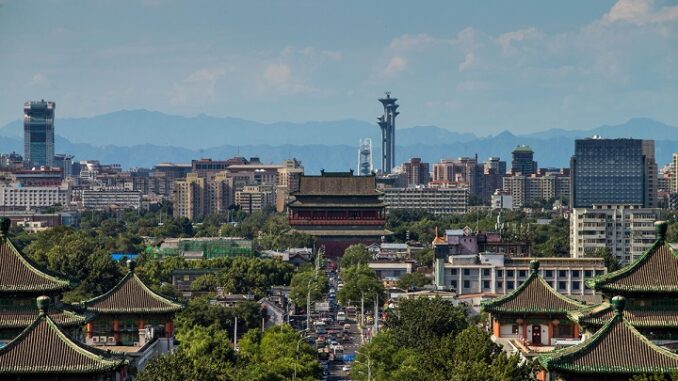
New action plan to improve China’s air quality, highlights green and low-carbon transformation
China’s new action plan to improve its air quality highlights a green and low-carbon transformation and win-win situation for environmental, economic and social benefits, China’s top environmental engineer said on Monday.
In November 2022, China was identified as having achieved the world’s fastest improvement in air quality, with a dramatic drop in the emissions intensity of major pollutants and carbon.
By 2021, China’s annual average PM2.5 concentration and sulfur dioxide concentration had fallen by about 56 and 78 percent from 2013, respectively, making China the country that has improved its air quality with the fastest speed in the world, said Clean Air Asia (CAA), an international NGO that works for better air quality and healthier cities throughout Asia with its headquarters in Manila, the Philippines.
The CAA report on China’s decade (ending 2021) of cleaner air and climate change assessed the air quality situation in 20 countries including the US, the UK and Germany, as well as 17 other countries in Asia, such as China, Japan, South Korea, Mongolia, Singapore, Indonesia, the Philippines, India and Pakistan.
Now the new plan shows China’s continued commitment to addressing global climate change as a responsible country, and its successful experience will offer a blueprint for other countries, experts said.
“This plan reflects China’s ongoing efforts to reduce carbon emissions. It clearly sets goals, outlines the path and provides concrete details for the next move,” Ma Jun, director of the Beijing-based Institute of Public and Environmental Affairs, told the Global Times on Monday.
Ma said that this is an upgraded action plan, which moves away from previous end-of-pipe treatment and focuses more on structural adjustments, low-carbon transformation and adjustments in the nation’s energy and industrial structures. The State Council, China’s cabinet, issued the action plan on Thursday for the continuous improvement of the nation’s air quality. Under the plan, China should boost the development of new and clean forms of energy, while strictly and reasonably controlling coal consumption and prohibiting new steel capacity. The action plan is China’s third major move to improve its air quality since 2013. It highlights reducing air pollution and addressing prominent atmospheric environmental issues with precise and scientific approaches, Liu Bingjiang, chief engineer of China’s Ministry of Ecology and Environment, told a press conference on Monday. The main objective is to decrease the concentration of PM2.5 by actively promoting the reduction of nitrogen oxides and volatile organic compounds. The plan also aims to promote the green and low-carbon transformation of industries, the energy sector and transportation, achieving win-win benefits in terms of environmental, economic and social outcomes, Liu said. By 2025, the concentration of PM2.5 in all cities at the prefecture level and above will decrease by 10 percent compared with 2020, and the ratio of severe and above pollution days will be controlled within 1 percent. It is expected that by 2025 electricity should account for around 30 percent of total energy end-use, and non-fossil energy consumption should reach around 20 percent, according to the action plan. It also emphasizes the importance of scientific and precise measures, integrating carbon and pollution reductions with high-quality development, Ma noted. According to Liu, in the past 10 years, China’s GDP has doubled while the level of PM 2.5 has dropped 57 percent, demonstrating coordinated development in terms of the economy, the environment and society. “Nationwide efforts to control air pollution have directly and indirectly stimulated investments of approximately 4 trillion yuan ($557 billion), leading to a growth in GDP of 5 trillion yuan and creating more than 3 million non-agricultural jobs,” Liu said. The new action plan comes as China’s role in global climate governance was highlighted at the just-concluded 28th UN Climate Change Conference in Dubai, United Arab Emirates (COP28). “China has made significant progress in improving air pollution at a remarkable speed, contributing to the enhancement of regional air quality,” Liu said. In the past decade, China’s efforts to control air pollution and its successful experience can serve as a valuable reference for the global community, particularly the Global South, Ma said. China has consistently been at the forefront of tackling air pollution, and this new initiative is yet another demonstration of China’s commitment to sharing its wisdom and collaborating with the world to advance pollution control, Ma noted.
Source: Global Times, Dec 11, 2023; and Nov 29, 2022. https://www.globaltimes.cn/page/202211/1280734.shtml https://www.globaltimes.cn/page/202312/1303416.shtml